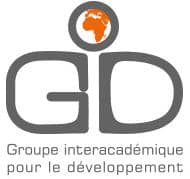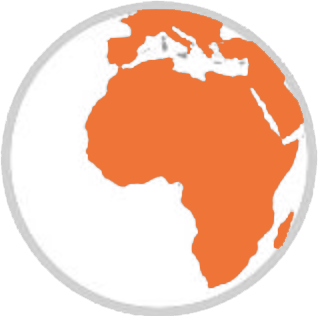1) Women in water management (26-28 mars 2007, Maroc)
Abstract:
Water is the most important natural resource as it has a decisive influence on life. Its availability, in terms of quantity and quality, has a strategic impact on sustainable development. During the 20th Century, world population tripled, while world demand for water increased six- fold. In addition to populations needs for drinking water, various factors also contribute to this demand such as agricultural intensification, industrial expansion and climate change. Water being a shared resource, there is a fierce competition amongst all concerned sectors and at times also between nations. Therefore, efficient water management is not only the key to economic development and environmental sustainability but is also a vital ingredient in socio-political stability.
Today, 1.1 billion persons don’t have access to a minimum quantity of potable water, 2.4 billion are lacking sanitation and 5 million, from which 3 million children, die every year because of water-related diseases. Many countries will not be able to meet the targets set by the Millennium Development Goals relative to water and sanitation by 2015.
The workshop “Women in Water Management” held in Morocco on 26-28 March 2007 aimed at constructively reflecting this general acceptance for a more effective participation of women in water-related development efforts. It focused on translating paradigms into concrete actions and accurate mechanisms to ensure that women’s capacities be strengthened, their voices heard at all community levels and most importantly that their professional skills be recognized and capitalized on within water institutions.
The objectives of the “Women in Water Management” workshop were mainly to:
- Comprehend the situation in each of the participating countries concerning the role of women in water management, capitalize on lessons learned, highlight opportunities and identify limitations that can be overcome by capacity building activities and transfer of technologies and best practices.
- Go beyond the simple desirability of balanced roles between men and women, and define what women can contribute to the efficient management of water and how it can be put into practice.
- Discuss and evaluate the relevance of affirmative action policies and gender-biased laws that aim to encourage women’s participation such as awards, facilitated access to micro- credits, quota systems…
2) Choosing One’s Life and Building One’s Family
Presenting:
This booklet is a result of an inquiry conducted amongst adults and children of West Africa by a team of CNRS researchers from the Mixed International Unit 3189 and GID-SANTE (Inter-academic group for development of the Institute of France), in the framework of a programme « Practices of actors in the field of family planning », financed by UNFPA.
The research was carried out in :
- Burkina Faso by Marie Thèrèse Arcens Somé, Andrinette Tavi & Kibspoko Kuila
- Ghana, by Albert Awedoba & Deborah Atobrah
- Mali, by Abdourahmane Coulibaly and Aissata Haïdara
- Senegal, by Fatoumata Hane & Malick Sy Camara
The editing was done by the Resurgences Association (Marseille), by Sarah Champion (writing, conception and selection of drawings), as well as Saloua Taghouti for the editing of childrens’ drawings and Magali Daniel for the cover. The translation was done by Arundhati Virmani, EHESS, Centre Norbert Elias.
We thank both doctor Alain Prual and doctor Luc de Bernis for the feedback on the first version of this work. This makes them excempt from any responsibility for the revisions in the final version.
This booklet was conceived as a tool of reflection on maternity and paternity. It is destined to children and adolescents. It can also serve as a pedagogical tool for Education and Health professionals.
All the texts found here are declarations made or written by children or adults of Burkina Faso, Ghana, Mali and Senegal and correspond to their life experiences.
There is undoubtedly no recipe for “succeeding one’s life”. And this book has no intention of giving lessons. It simply intends to show children the choices available to them and link these choices with their consequences as experienced by some adults.
We hope that this dialogue between man and woman and between generations will enable everyone to conduct his or her own reflection in complete freedom.
3) Décider de sa vie et construire sa famille
Présentation:
Ce livret a été réalisé grâce à une enquête effectuée auprès d’adultes et d’enfants d’Afrique de l’Ouest par une équipe de chercheurs de l’Unité Mixte Internationale du CNRS 3189 et le GID-SANTE (Groupe Inter-académique pour le Développement de l’Institut de France), dans le cadre du programme « Pratiques d’acteurs dans le domaine de la planification familiale », financé par UNFPA.
La recherche a été réalisée :
- au Burkina Faso par Marie Thèrèse Arcens Somé, Andrinette Tavi et Kibspoko Kuila
- au Ghana, par Albert Awedoba et Deborah Atobrah
- au Mali, par Abdourahmane Coulibaly et Aissata Haïdara
- au Sénégal, par Fatoumata Hane et Malick Sy Camara
Le travail d’édition a été réalisé par l’Association Résurgences (Marseille) avec Sarah Champion-Schreiber (rédaction, conception, choix des dessins), Saloua Taghouti (maquette) et Magali Daniel (couverture).
Nous remercions les docteurs Alain Prual et Luc de Bernis pour leurs remarques sur une première version de ce texte. Ce qui ne les rend aucunement responsables du texte final.
Ce livret a été conçu comme un outil de réflexion sur la maternité et la paternité. Il est à l’usage des enfants et adolescents. Il peut aussi être un outil pédagogique pour tous les professionnels de l’éducation et de la santé.
Tous les textes qui le composent ont tous été prononcés ou écrits par des enfants ou des adultes du Burkina Faso, du Ghana, du Mali et du Sénégal et correspondent à leurs expériences de vies.
Il n’y a sans doute pas de recette pour « réussir sa vie », et ce livret ne prétend aucunement donner de leçon. Il vise simplement à ouvrir un espace d’échanges en confrontant des choix d’enfants à leurs conséquences telles qu’elles ont été vécues par des adultes.
Nous espérons que ce dialogue entre homme et femme et entre générations permettra à chacun de mener sa propre réflexion en toute liberté.

